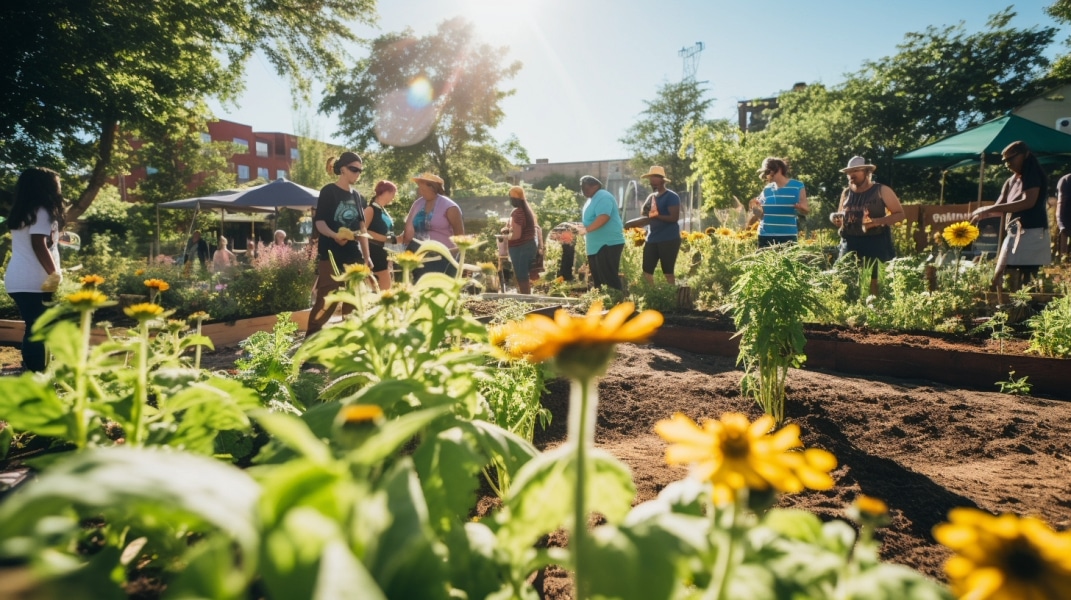In the midst of towering buildings and bustling streets, urban gardening offers a breath of fresh air.
It provides an opportunity for city-dwellers to reconnect with nature and enjoy the benefits of green spaces without leaving their urban environment. Whether it’s a small balcony garden or a community plot, urban gardening has grown in popularity due to its numerous advantages. In this article, we will explore the benefits of urban gardening and how it can enhance our lives.
Physical Activity
Urban gardening is a fantastic way to incorporate physical activity into your daily routine. Tending to your plants, digging in the soil, and carrying gardening tools all contribute to increased physical movement. It’s a great form of exercise that engages your whole body and helps burn calories, ultimately promoting better fitness and overall health.
Stress Reduction
Spending time in nature has been proven to reduce stress levels and improve mental well-being. Urban gardening provides a peaceful escape from the hustle and bustle of city life, allowing you to unwind and connect with the earth. The act of nurturing plants and watching them grow can be incredibly therapeutic and calming, offering a break from the pressures of daily life.
Fresh and Healthy Produce
Growing your own fruits, vegetables, and herbs in an urban garden ensures a supply of fresh and organic produce at your fingertips. By bypassing the conventional food system, you have complete control over what goes into your plants and can avoid harmful pesticides and chemicals. Not only does this promote a healthier diet for you and your family, but it also reduces your carbon footprint by decreasing the transportation required for food production.
Community Engagement and Social Benefits
1. Building Stronger Communities
Urban gardening fosters a sense of community and brings people together. Common spaces such as community gardens serve as meeting places where neighbors can interact, share gardening knowledge, and forge new friendships. It promotes a sense of belonging and strengthens social connections, combating the isolation often experienced in urban settings.
2. Educational Opportunities
Urban gardens provide an excellent platform for knowledge-sharing and learning opportunities. Community gardens often organize workshops, seminars, and gardening classes, where people of all ages can learn about sustainable gardening practices, composting, and other related topics. This helps spread awareness about environmental issues and encourages the next generation to become more environmentally conscious.
3. Food Security
Urban gardening plays a vital role in enhancing food security within communities. By cultivating their own food, urban dwellers have a reliable source of fresh produce, especially in areas with limited access to nutritious options or “food deserts.” Additionally, community gardens can donate surplus produce to local food banks or organize markets, ensuring that everyone has access to healthy food choices.
Conclusion
Urban gardening is more than just a hobby; it’s a lifestyle that brings significant benefits to individuals and communities alike. From improving physical and mental health to fostering community engagement, the advantages of urban gardening are numerous. As cities continue to grow, prioritizing green spaces and encouraging urban gardening initiatives will help create healthier, more sustainable environments. So, grab your trowel and join the urban gardening movement – reconnect with nature and reap the rewards it brings.
